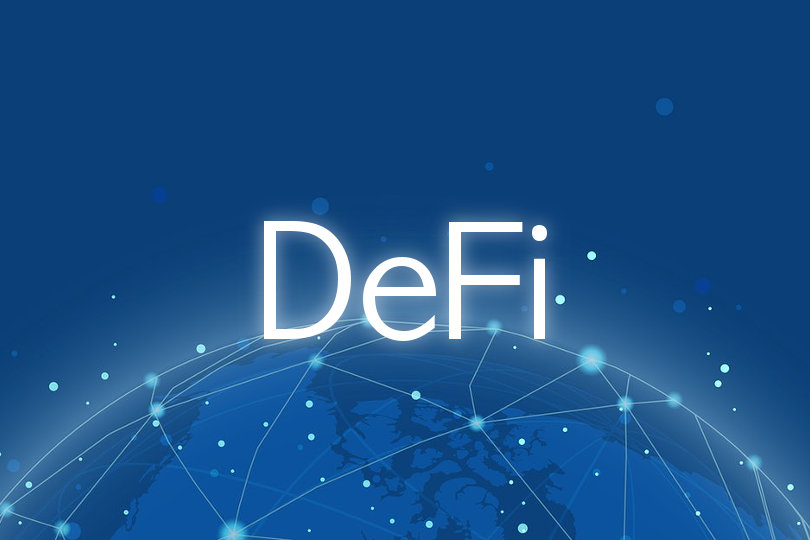One of the biggest buzzwords you will see in the crypto sphere is DeFi, a shortened term for decentralized finance. This umbrella term includes all peer to peer financial services on public blockchains.
Previously known as “open finance”, this encompasses many financial applications in blockchain, and it aims to disrupt the current finance system. Think decentralized institutions, no need for ivory towers on Wall Street, no bloated bankers salaries, no unnecessary overhead costs.

There is an unlimited potential in freeness and fairness, accessible to anyone with a computer and internet connection. Ultimately future developments in the DeFi marketplace will mean that all data will be safe and completely private.
DeFi was inspired and born from blockchain, the technology behind Bitcoin. Upon some reflection, blockchain is not a new technology at all. Blockchain is just the combination of older, secure technologies bandied together and applied in a new direction.
This union of the internet, private key cryptography and the blockchain’s protocol innovates how information is registered and distributed. No longer is another party required to facilitate business.
This revolution in transactions will not only affect direct purchases, but it will eliminate the middlemen from various transactions we encounter even on a daily basis. Removing the need for these intermediaries will change investment banking, commercial banking, insurance companies, insurance brokers, and more. This gives the user a true freedom to immediately access the services they need.
Currently, all decentralized finance activities are taking place on Ethereum, the world’s second largest cryptocurrency platform, due to its flexibility and ease of use.
Innovation in DeFi is moving at a fantastic pace. One of the new concepts deployed is known as yield farming. Simply put, yield farming is any effort to put your crypto assets to work in order to receive the highest returns possible on those assets.
One of the newest way to make profits on farming is found in the Ethereum network using the Free TON Ethereum bridge. Users can provide tokens to the DEX (decentralized exchange) or bridge liquidity pool.

Liquidity pools are smart contracts that have tokens locked in their accounts. Liquidity pools are used by a DEX (decentralized exchange) to maintain trading activity and token liquidity. When placed in the decentralized exchange they temporarily freeze the tokens in place. While frozen, the tokens are available for exchange with other users in the system, which allows these tokens to be constantly performing operations, without waiting for a specific currency to make an appearance.
There are many benefits to using the Free TON Ethereum bridge. It is open, you don’t need to apply for any form of service. You never have to provide your name, or any sort of personal information. The speed is incredible, thanks to dynamic sharding built into Free TON. This provides not only speed but incredible performance that is more than sufficient support any kind of transaction.
Free TON has its entire system designed in Smart Contracts. This means that almost any logic can freely be implemented, no matter its complexity.
First bridge has been developed between Free TON and Ethereum by Broxus. Even more bridges are currently in development between Bitcoin, Polkadot and more. A seemingly magical movement is taking place in the open finance system, bringing money and access to all online.
The functionality of money will change before our eyes. It is difficult to imagine what new innovations will occur when the power to create financial services becomes decentralized and a true meritocracy.




